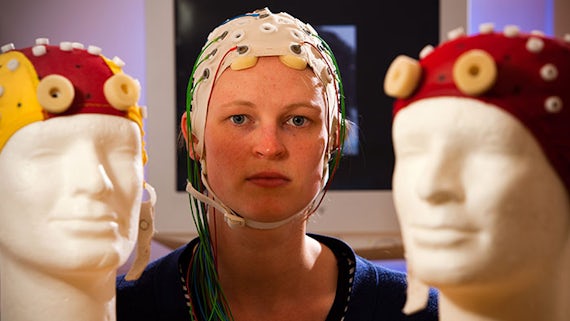Being around children makes adults more generous, say researchers
7 May 2021

According to new research from psychologists at Cardiff University and the University of Bath, adults are more compassionate and are up to twice as likely to donate to charity when children are present.
The research, which was supported by the Economic and Social Research Council, examined how the presence of children influences adults’ compassionate motivations and behaviour across a series of experiments and a field study.
Across eight experiments and more than 2,000 participants, the researchers asked adults to describe what typical children are like. After focusing on children in this way, participants subsequently indicated higher motivations towards compassionate values, such as helpfulness and social justice, when compared to participants who described adults.
In a field study, which built on these findings, the researchers found that adult passers-by on a shopping street were more likely to donate to charity when more children were around relative to adults.
When no children were present and all passers-by were adults, the research team observed roughly one donation every ten minutes. But when children and adults were equally present on the shopping street, adult passers-by made two donations every ten minutes.
These effects could not be accounted for by higher footfall during busy times or whether donors were accompanied by a child or not. Instead, they suggest that the presence of children can nudge adults to behave more generously and donate more often.
Interestingly, the findings from the experiments and the field study point to a widely applicable effect. The researchers observed that the ‘child salience effect’ was evident among both parents and non-parents, men and women, younger and older participants, and even among those who had relatively negative attitudes towards children. The research suggests that these effects could also have widespread implications.
Co-author and School of Psychology Professor Geoff Haddock said: “These results are important in demonstrating how the presence of children, or even simply thinking about children, can impact prosocial motivation and behaviour. There are many other potentially important implications of these findings that we hope to address in future research.”
Lead researcher Dr Lukas Wolf from the Department of Psychology at the University of Bath explained that this potential for widespread effects is crucial, because it indicates society needs to consider more ways to involve children more directly in various aspects of life.
The results of the study were published in the journal Social Psychological and Personality Science and you can view the paper here.
Share this story
We provide outstanding undergraduate and postgraduate teaching informed by our leading research in psychology and neuroscience.
